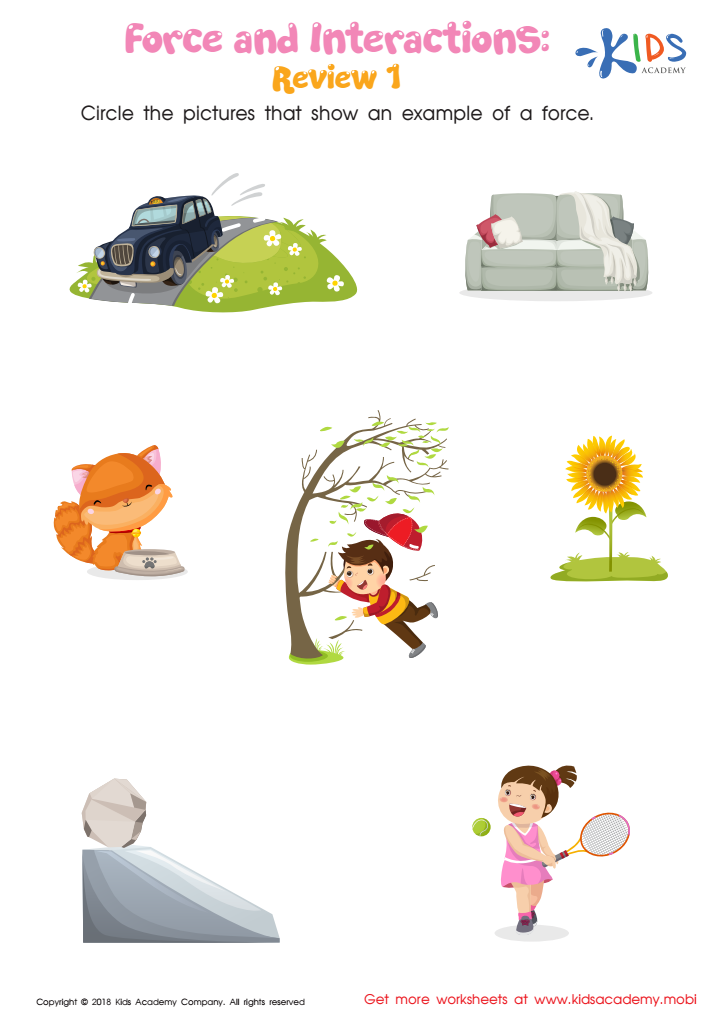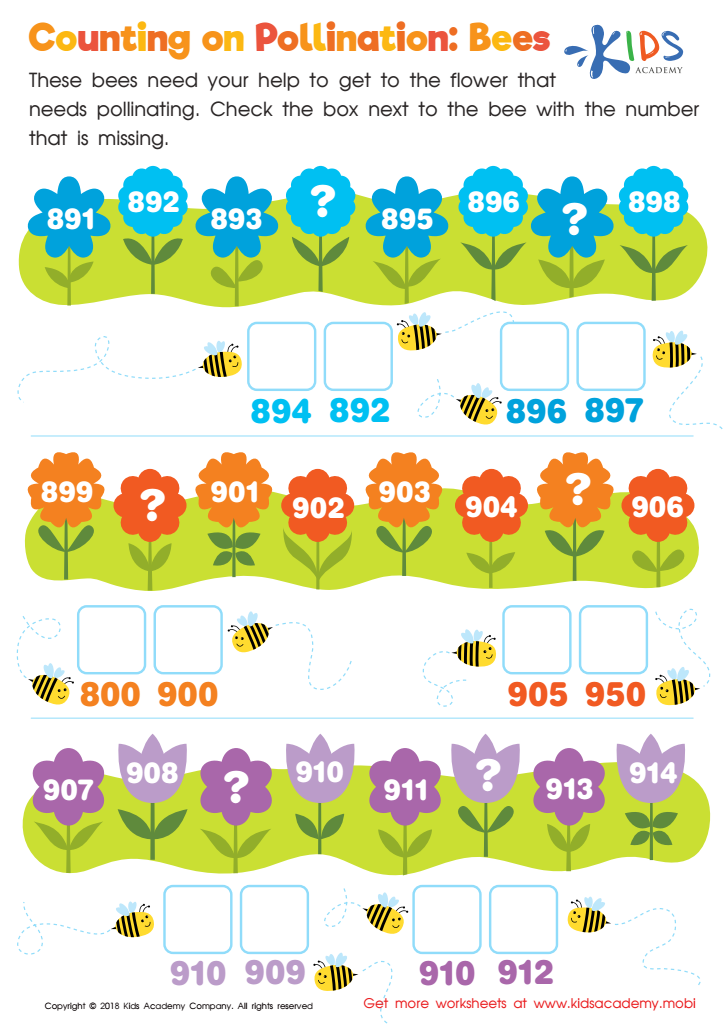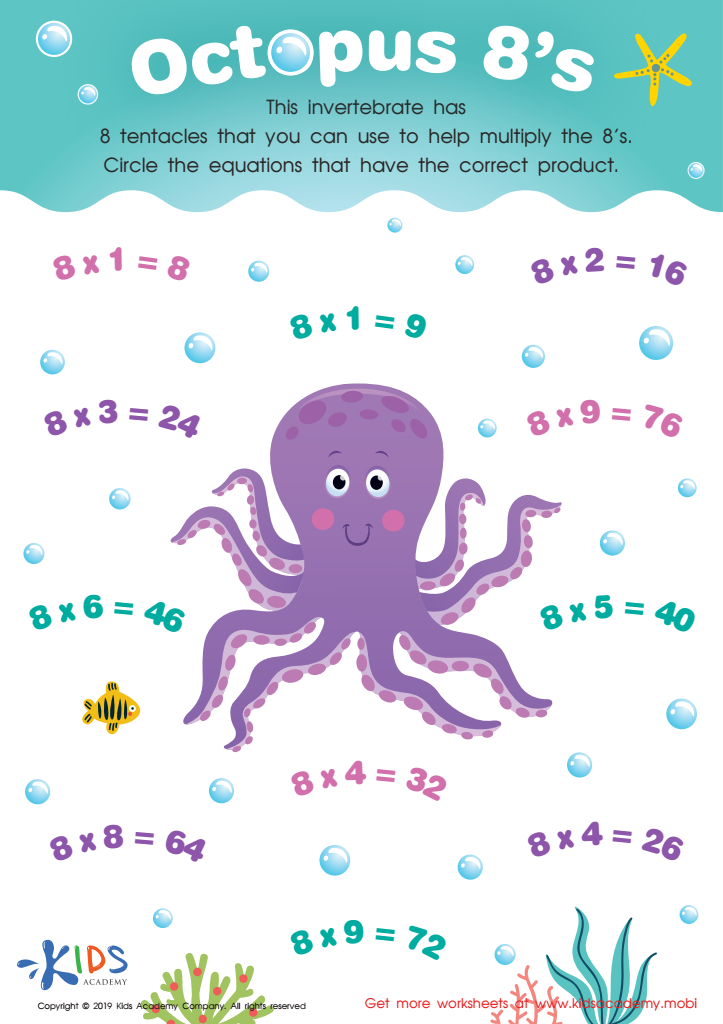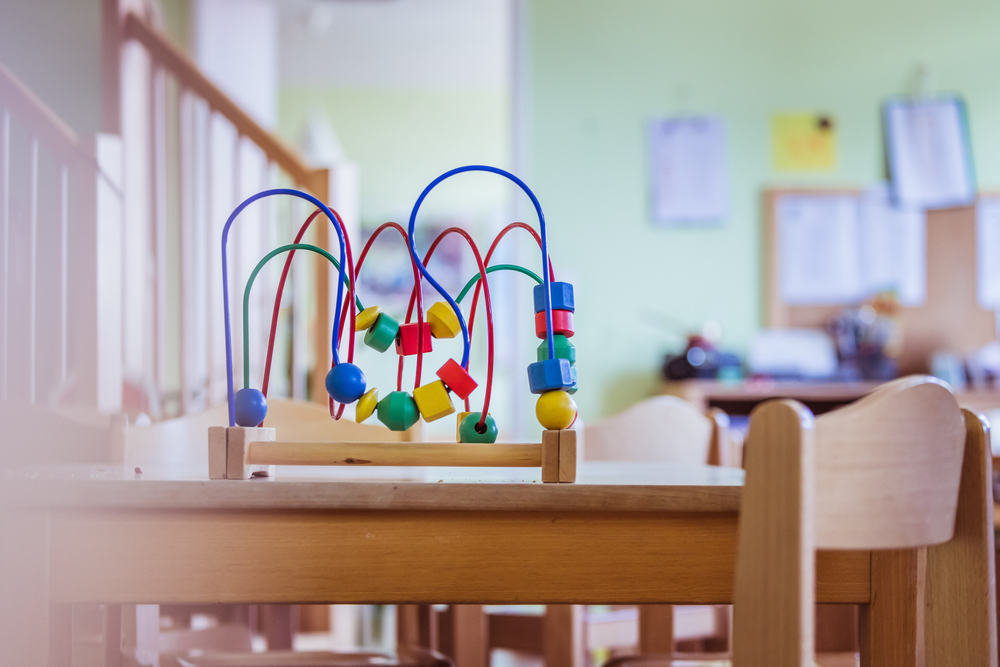Counting practice Normal Science Worksheets for Ages 4-9
4 filtered results
-
From - To
Our Counting Practice Normal Science Worksheets for ages 4-9 offer a fun and educational way to enhance your child's numerical skills. Designed by experts to combine math and science seamlessly, these engaging worksheets make learning to count a delightful experience. Ideal for young minds exploring basic math concepts, these activities support early childhood development and foster cognitive growth. Each pages provides exercises that cultivate observational skills and scientific thinking, all through the power of counting. Help your child build a strong educational foundation while making learning enjoyable with our Counting Practice Normal Science Worksheets!


Force and Interactions: Assessment 1 Worksheet


Force and Interactions: Review 1 Worksheet


Counting on Pollination: Bees Worksheet


Octopus 8’s Worksheet
Counting practice is fundamental for children ages 4-9 as it lays the groundwork for all future mathematical learning. Parents and teachers who invest in regular counting activities help children develop strong numeracy skills crucial for their academic success. The early ability to count not only assists with basic arithmetic skills but also enhances a child's understanding of number sense, which includes recognizing patterns, comparing quantities, and grasping the concept of addition and subtraction.
At this developmental stage, children's brains are highly adaptive, making it an ideal time to introduce and reinforce counting exercises. This can be intertwined with their everyday activities to keep learning engaging and relevant. For instance, counting toys, steps, or objects during playtime or while engaging in daily routines embeds numeracy in their world organically.
Moreover, counting helps to develop critical cognitive skills like attention to detail, memory, and problem-solving. Proficient counting boosted by practice enhances children's confidence and builds a positive attitude towards mathematics as they progress to more complex concepts. Ultimately, a strong foundation in counting is not just about learning to recite numbers - it’s a gateway to a lifetime of mathematical understanding and application. Providing support during these formative years prepares children for academic challenges and fosters lifelong curiosity and competence in science and math.
 Assign to My Students
Assign to My Students








%20(1).jpg)










